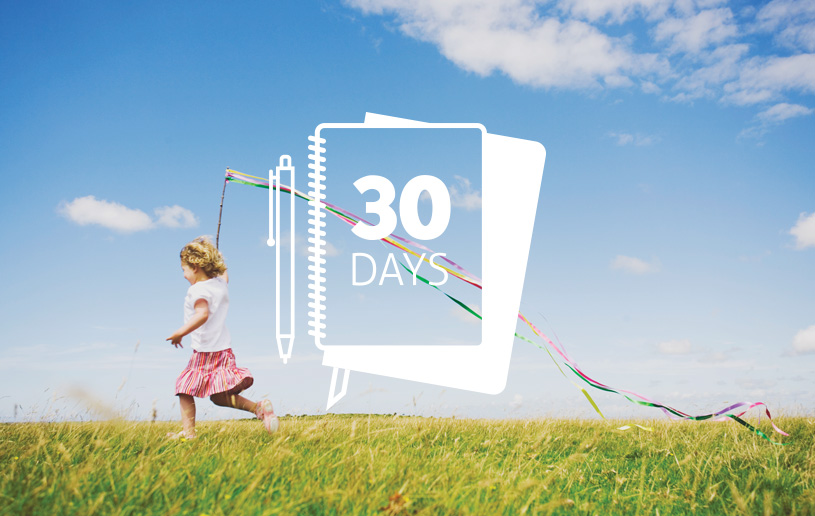
This article is designed to create a better understanding and application of forgiveness. For the next 30 days read the questions, look up the verses, and allow them to spark deeper personal reflection and life change.
Living in a fallen world of people where we all sin and have been sinned against means we all need forgiveness and to grant forgiveness. Although they are not always easy tasks doing so is worthwhile bringing freedom and blessing.
- God is holy. Habakkuk wrote, “Your eyes are too pure to look on evil; you cannot tolerate wrongdoing” (1:13 NIV). But we’re all sinners. What are the consequences of your sin being a barrier between God and you?
- Because of His holiness God reacts to sin with wrath (Romans 1:18). Unless the sin is removed or covered God must punish the sinner. When you are hurt or offended how do you react?
- Forgiveness is the act of releasing an offence and reconciling with your offender. God does this for you through Jesus’ death (Romans 3:23–26). How does Christ’s death atone (cover) your sin?
- One biblical image of forgiveness is covering sin, putting it out of sight, blotting it out (Psalm 32:1; 51:9). How does this imagery change how you view your offender?
- God delights to show mercy. The biblical imagery Micah 7:18–19 describes is God’s forgiveness casting our sin into depths of the sea. What does this teach you about the finality of His forgiveness?
- According to Psalm 51 (verses 2, 7, and 10) what is the biblical image used to convey forgiveness? Ponder this: In Exodus 12:22 hyssop was used to apply the blood to the doorposts.
- In the New Testament, forgiveness is described as cancelling a debt (Matthew 6:12; 2 Corinthians 5:19). Jesus’ death provided payment for your sin, but who pays the debt if you reject Christ?
- According to Acts 3:19 and 1 John 1:9 what must you do to receive payment for your sin and God’s forgiveness?
- God is “merciful and gracious, slow to anger and abounding in steadfast love” (Exodus 34:6). How does the word “abounding” characterize how God forgives?
- How does the story of the prodigal son (Luke 15:11–32) portray God’s lavish forgiveness for repentant sinners? How is that a model for your forgiveness?
- In what way does the story of the prodigal son (Luke 15:11–32) portray God’s heart and the restoration of sinners?
- Matthew 18:21–35 says you should be ready to forgive no matter what, but reconciliation requires the offender be accountable for his offence. What are ways you can forgive an unrepentant offender?
- Repentance precedes reconciliation. Once the offender repents the relationship can be restored and fellowship enjoyed. Why is it sinful to not forgive someone who is repentant?
- In some cases reconciliation isn’t wise due to the nature of the offence or isn’t possible due to death. What are ways you can experience forgiveness without having the closure of reconciliation?
- Matthew 6:14 says, “if you forgive people their sins, your Father in heaven will forgive your sins also,” (NLT). What is the connection between forgiving others and God’s forgiveness in Matthew 6:15?
- You can’t receive forgiveness without acknowledging your need for it. And because of your own imperfection what right do you have to withhold forgiveness from anyone else?
- “Above all, love each other deeply, because love covers a multitude of sins” (1 Peter 4:8). Forgiveness is the very essence of your faith—how should this characterize your life?
- Colossians 3:13 says, “Forgive as the Lord forgave you.” Forgiving is a deliberate choice not based on emotions. Who in your life are you holding back from forgiving because of hurt feelings?
- Emotions are a response to what you do or think so shouldn’t influence your decisions. Why is a deliberate choice to forgive and to continue forgiving essential to emotional healing?
- God loves you as well as those who hurt you. How can remembering God loves your offender so much He died for him or her help you find forgiveness?
- Read Romans 8:28. Even offences are included in the “all things” allowed by God in His sovereign plan for your good. What good purpose can being hurt and extending forgiveness achieve?
- In John 20:22–23 Jesus breathed on His disciples and said, "Receive the Holy Spirit!" His next instruction was about forgiving people. What is the connection?
- If the Spirit of Jesus who forgave all your sins lives in and through you, how will living under His influence daily enable you to forgive others?
- People think some offences are impossible to forgive. How should Jesus’ words, “With God all things are possible” (Matthew 19:26) impact your dependence on God to help you forgive?
- People often repeat their offences. What, according to Jesus in Matthew 18:21–22, is the limit to how many times should you should forgive your offender?
- Forgiveness is hindered when you dwell on hurts. How would committing yourself to letting go after choosing to forgive help you heal?
- According to Hebrews 12:14–15 what damage can you cause to yourself and others by harbouring unforgiveness in your heart?
- Esau forgave Jacob (Genesis 33:4); Joseph forgave his 10 brothers (Genesis 50:19–20); Jesus sought forgiveness for those who crucified Him (Luke 23:34). How do these show you nothing is unforgivable?
- Healing from hurts comes when you forgive and then pray for your offenders. Prayer helps complete the act of forgiving. What will prayer do to your heart?
- Emotional healing requires the decision to forgive, the commitment to not dwell on it, prayer, and time. What is holding you back from moving forward and committing to forgive?

